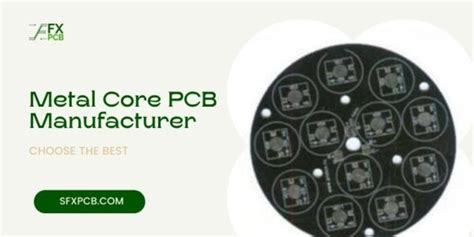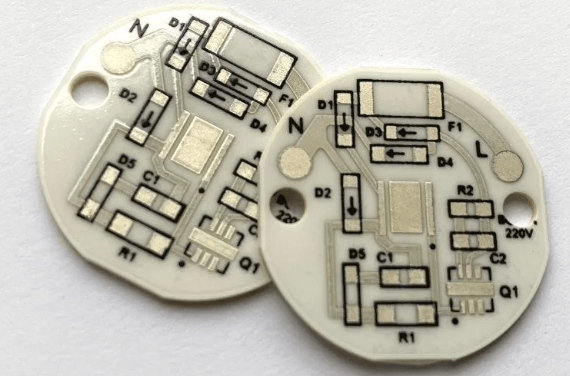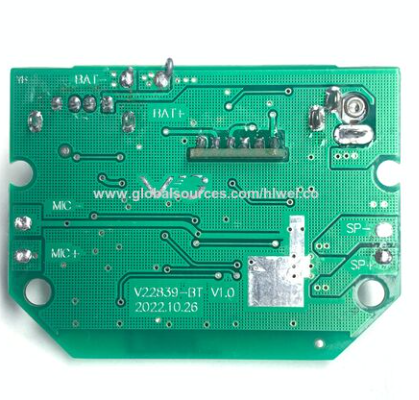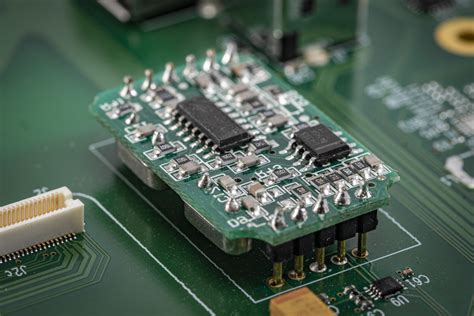Choosing the Right Metal Core PCB Manufacturer for Your Needs
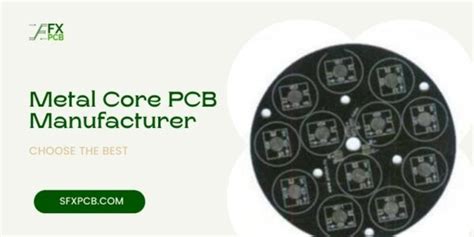
Key Takeaways
When embarking on the journey to select a metal core PCB manufacturer, there are several critical factors to keep in mind to ensure that you make the right choice for your pcb manufacturing needs. First and foremost, assess the thermal performance capabilities offered by potential manufacturers, as this is crucial for applications where heat management is vital. Additionally, you should closely evaluate their quality control practices; firms with robust quality assurance systems are more likely to consistently deliver high-standard products. Furthermore, consider the overall service capabilities of these pcb manufacturing companies, which play a significant role in how well they can support your project from initial design through production. Understanding the delicate balance between pcb manufacturing cost and quality is also essential; while budget constraints are valid, compromising on quality can lead to costly issues down the road. It’s also beneficial to familiarize yourself with industry standards relevant to metal core PCBs, as adherence indicates a commitment to excellence in pcb manufacturing business practices. Lastly, don’t overlook the importance of customization options, which can be pivotal in meeting your unique project specifications while fostering a long-term partnership that benefits both you and your selected manufacturer.
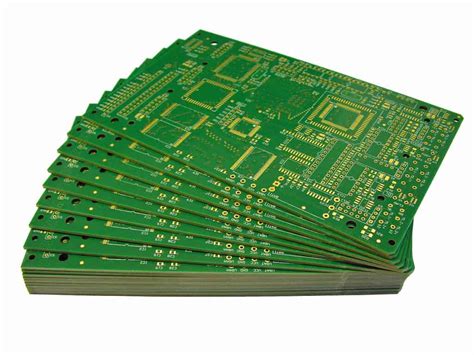
Choosing the Right Metal Core PCB: Key Considerations
When you are embarking on the journey of selecting a metal core PCB manufacturer, you must contemplate various factors that significantly influence the performance and reliability of your project. A primary element to assess is the thermal performance of the PCBs. Since heat dissipation is crucial in many applications, you should look for manufacturers that specialize in high-quality thermal management solutions. This can save you substantial costs and prevent potential failures down the line.
In addition to thermal capabilities, you should evaluate the quality control practices of various PCB manufacturing companies. Understanding their processes can help ensure that they maintain stringent standards throughout production. Make sure to inquire about their certifications and quality assurance methodologies, as this reflects their commitment to excellence in PCB manufacturing.
Furthermore, comparing pcb manufacturing costs among different suppliers is necessary, but prioritize quality over price alone. A lower cost might be tempting but could lead to compromises in quality that may affect your final product’s performance and longevity. Use a comparative table for clarity:
| Manufacturer | Thermal Performance | Quality Control | PCB Manufacturing Cost |
|---|---|---|---|
| Manufacturer A | Excellent | ISO Certified | $X |
| Manufacturer B | Good | Basic Standards | $Y |
| Manufacturer C | Superior | Six Sigma | $Z |
Lastly, don’t overlook the service capabilities offered by these manufacturers. Their ability to provide support during design and post-manufacturing processes can be critical for a smooth project execution. You want a partner who understands your unique needs and can adapt accordingly. By considering these factors thoughtfully, you are more likely to find a dependable partner for your pcb manufacturing business, aiding your project toward success.
For additional insights on metal core PCB manufacturing, consider exploring resources from Andwin PCB.
Understanding Thermal Performance in Metal Core PCBs
When choosing a metal core PCB manufacturer, one of the most critical aspects to consider is thermal performance. Metal core printed circuit boards (PCBs) are engineered to dissipate heat effectively, making them an ideal choice for high-power applications. In your search for a suitable manufacturer, you must ensure they possess the technical expertise and resources to deliver PCBs that excel in this area. Look for pcb manufacturing companies that prioritize thermal management through robust design methodologies and quality materials.
It’s essential to assess how the manufacturer approaches thermal tests and simulations during the pcb manufacturing process. You might want to inquire about their thermal characterization methods, which can determine how well their PCBs will operate under stress. Higher thermal conductivity in materials, such as aluminum or copper substrates, greatly enhances performance; ensure that your chosen manufacturer uses these materials effectively.
Additionally, consider the role of design flexibility—can they customize solutions to fit your project’s unique heat dissipation requirements? When you evaluate pcb manufacturing costs, remember that investing a bit more initially in quality can save you significantly down the line by reducing failures and prolonging product lifespan. It’s wise to partner with manufacturers who understand this balance well.
“Prioritize manufacturers who showcase their thermal performance data and offer collaborative design support; this ensures your final product meets both efficiency and budget needs.”
With careful consideration of thermal design, you can find a partner well-equipped to guide you through your specific project challenges while also meeting financial constraints associated with the pcb manufacturing business.
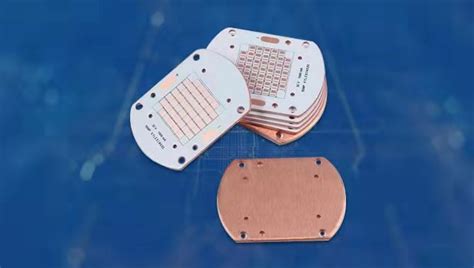
Evaluating Quality Control Practices in PCB Manufacturing
When selecting a metal core PCB manufacturer, one of the most critical aspects to consider is their quality control practices. Effective pcb manufacturing relies heavily on an established system that ensures every single board meets the necessary specifications and industry standards. Start by examining how the manufacturer monitors their production processes. Look for pcb manufacturing companies that implement rigorous testing procedures, such as automated optical inspection and electrical testing, to detect any potential defects early in the production cycle.
Moreover, consider their commitment to continuous improvement; a reputable manufacturer should regularly update their quality control protocols to adapt to new technologies and market demands. This not only reflects their dedication to maintaining high standards but can also influence the overall thermal performance of your metal core PCBs. Additionally, inquire about certification with industry standards like IPC-A-600 or IPC-A-610, as this can further validate their practices.
Lastly, ask how they handle discrepancies in quality—do they have a clear corrective action process? This aspect of their pcb manufacturing business is crucial in understanding how effectively they respond to quality issues and whether they prioritize customer satisfaction in those situations. By evaluating these quality control practices, you can make an informed decision that aligns with your project’s specific requirements and ultimately leads to superior product performance.
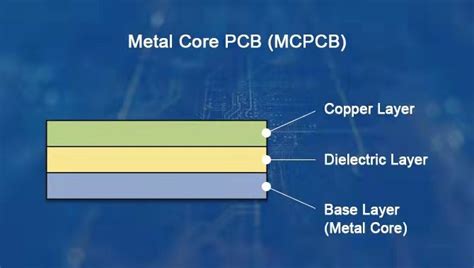
Assessing Service Capabilities of Metal Core PCB Manufacturers
When selecting a metal core PCB manufacturer, it is crucial to assess the service capabilities they offer. This involves evaluating their ability to communicate effectively, respond to your inquiries in a timely manner, and provide comprehensive support throughout the pcb manufacturing process. A manufacturer that prioritizes customer service will not only help you navigate complex production timelines but also offer valuable insights tailored to your project’s specific requirements. Furthermore, inquire about their experience in handling projects similar to yours, as this can be indicative of their expertise within the pcb manufacturing business. Additionally, consider how flexible they are in adapting to your needs — can they accommodate changes in design or production schedules without compromising quality? Understanding these aspects can directly impact the pcb manufacturing cost and ultimately determine the success of your project. By ensuring that your chosen partner has strong service capabilities, you will foster a productive relationship that enhances both communication and efficiency throughout the production process.
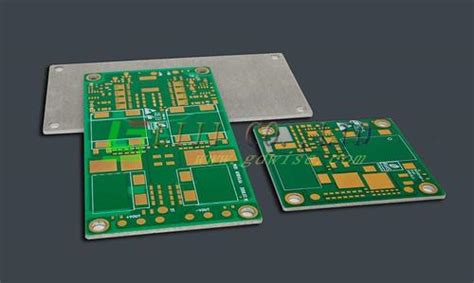
Comparing Cost vs. Quality in Metal Core PCB Production
When navigating the landscape of metal core PCB manufacturing, a common dilemma arises: how to balance cost and quality effectively. While it may be tempting to select a manufacturer based solely on the lowest pcb manufacturing cost, this approach can lead to compromises in performance and reliability. Quality is paramount, especially in applications where thermal management is critical; subpar pcb manufacturing may result in overheating issues or premature failure of the circuit boards. As you evaluate different pcb manufacturing companies, consider their certification and adherence to industry standards, as these factors often correlate with higher quality outputs. Moreover, investing in a quality manufacturer could enhance the longevity and functionality of your final product, potentially saving costs associated with replacements and repairs in the long run. Thus, your decision should involve a comprehensive assessment of both the associated costs and the quality assurance practices employed by each manufacturer you are considering for your pcb manufacturing business. Remember that finding that perfect balance will not only improve outcomes but also contribute positively to your project’s overall success.
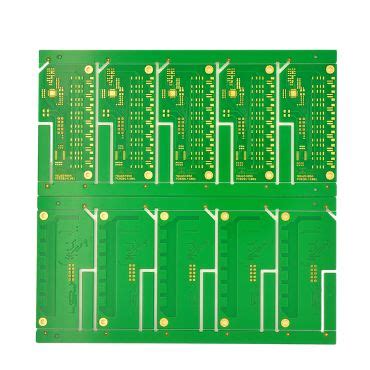
Identifying Industry Standards for Metal Core PCBs
When selecting a reliable metal core PCB manufacturer, it’s crucial to understand the industry standards that govern PCB manufacturing. Adhering to these standards not only ensures quality but also guarantees that the products will perform efficiently under various conditions. Look for PCB manufacturing companies that comply with international certifications such as IPC (Institute of Printed Circuits) standards. These guidelines cover critical aspects such as layout, thermal management, and material specifications. Furthermore, understanding the specific standards related to thermal performance is essential, as metal core PCBs are often employed in high-heat applications. By prioritizing manufacturers who follow these protocols, you can mitigate risks related to product failure and enhance your project’s overall efficiency. As you navigate the landscape of PCB manufacturing, keep in mind that aligning with industry norms is foundational to establishing a successful pcb manufacturing business that meets your project’s unique needs while managing the pcb manufacturing cost effectively.
The Role of Customization in Metal Core PCB Manufacturing
Customization plays a pivotal role in metal core PCB manufacturing as it directly influences the performance and functionality of your final product. When you engage with PCB manufacturing companies, it’s essential to understand that tailored solutions can significantly enhance both thermal management and signal integrity. Different applications necessitate varied designs, materials, and layout strategies, which means that the more you can customize your metal core PCBs, the better they can perform under specific conditions. Factors such as thickness, copper weight, and thermal vias can be adjusted to meet your unique requirements, thus impacting the overall PCB manufacturing cost. Furthermore, a manufacturer that specializes in customization is likely to have a more flexible production capability, allowing you to adapt quickly to changing market demands or project specifications. This flexibility often translates into better service capabilities and collaboration opportunities throughout the PCB manufacturing business lifecycle. By prioritizing customization in your selection process, you can ensure a product that not only meets technological standards but also aligns perfectly with your project’s goals.
Building a Long-Term Partnership with Your PCB Manufacturer
Establishing a long-term partnership with your metal core PCB manufacturer is crucial for the success of your pcb manufacturing business. When you choose to work with pcb manufacturing companies, you should prioritize a collaborative relationship based on trust and open communication. This partnership allows for better alignment on project goals, quality expectations, and timeline adherence, which ultimately affects the overall pcb manufacturing cost. It is essential to engage in discussions about your specific needs and how they can accommodate them, taking into account their capabilities in techniques and materials. In this ever-evolving industry, being flexible to changes and innovations in pcb manufacturing can set the foundation for success. Building this partnership will enable you to take advantage of customizing solutions that meet your technical demands, ultimately enhancing thermal performance and reliability in your end products. By focusing on this collaborative approach, you position yourself not just as a client but as a valued partner in their pcb manufacturing process.
Conclusion
In your pursuit of finding the ideal metal core PCB manufacturer, remember that selecting the right partner is pivotal to the success of your project. You should take into account elements such as quality, thermal performance, and service capabilities. Assessing these aspects ensures you engage with a manufacturer that not only meets your technical specifications but also aligns with your budgetary constraints.
Understanding the intricacies of pcb manufacturing can lead to significant gains, particularly in critical applications where the performance of metal core PCBs is essential. Evaluate each manufacturer’s approach to quality control practices as this guarantees consistency and reliability in the components you receive. Moreover, look into their pcb manufacturing business strategies—this insight can reveal their ability to adapt and respond to your unique challenges.
When it comes to financial considerations, it’s crucial to evaluate the relationship between pcb manufacturing cost and quality—investing wisely in quality materials often leads to reduced overall project costs down the line due to lower failure rates and longer product lifespans. Finally, establishing a relationship based on trust and communication will not only facilitate your current project but will also help build a durable partnership for future initiatives in the expansive field of PCB design and production.
FAQs
What are the key factors to consider when selecting a metal core PCB manufacturer?
When selecting a metal core PCB manufacturer, it’s crucial to consider quality, thermal performance, and service capabilities. These aspects directly impact the reliability and efficiency of your project, making them essential for a successful partnership.
How does thermal performance affect metal core PCBs?
Thermal performance is significant due to the efficient heat dissipation properties of metal core PCBs. A manufacturer that excels in providing high thermal conductivity will help ensure your electronic devices operate effectively, particularly in high-power applications.
What should I look for in quality control practices?
Look for manufacturers with strict quality control practices, including regular testing and certifications. This can greatly influence the pcb manufacturing cost, as manufacturers who uphold high standards often deliver better quality products with fewer defects.
Are customization options available with most PCB manufacturing companies?
Yes, many pcb manufacturing companies offer customization options that cater to your specific project needs. This can range from unique shapes and sizes to variations in thermal management features.
How do I assess the cost versus quality in metal core PCB production?
Assessing cost versus quality requires analyzing quotations from different manufacturers while considering their reputation and previous work. A lower pcb manufacturing cost may be tempting, but ensure it does not compromise the quality of your end product.

